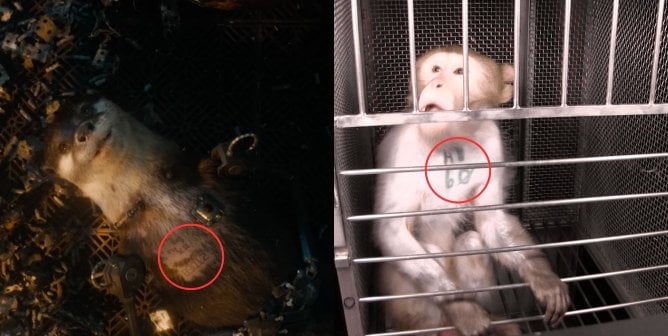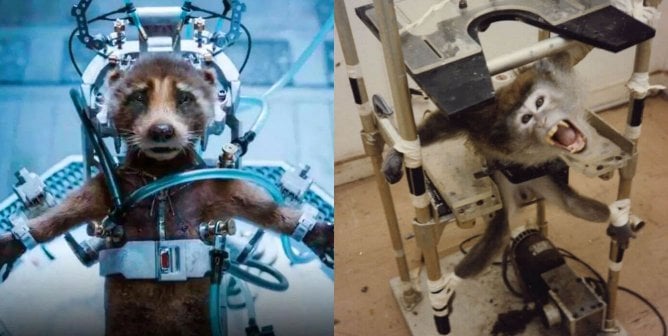‘Guardians of the Galaxy Vol. 3’ Has a Powerful Message About Animal Testing
Guardians of the Galaxy Vol. 3 does something few movies have ever done: It tells a beautiful and compassionate story about testing on animals to a Marvel-size audience. The film features gorgeously animated animals, including Rocket (voiced by Bradley Cooper, who was awarded an Oscat for his compassionate decision to feature his own animal companion in A Star Is Born), Lylla, Floor, and Teefs, who take moviegoers on an emotional rollercoaster while exposing the evils of animal testing. James Gunn’s screenplay doesn’t back away from the tough (but often true-to-reality) subject matter, and we’re thrilled by a story about having empathy for all living, feeling beings.
For his kind and compelling portrayal of Rocket and his friends and reminding moviegoers that animals tortured in laboratories are sentient beings and not the numbers tattooed on them, PETA is honoring Gunn (who is also the director of the film) with the Not a Number Award.
Guardians of the Galaxy Vol. 3 Exposes the Reality for Animals in Laboratories
Marvel reveals Rocket’s backstory while opening moviegoers’ eyes to the horrors of animal testing. Nebula said it best: Using animals in experimentation is “worse than anything Thanos ever did,” and it needs to end.
Here are just a few things that Guardians of the Galaxy Vol. 3 exposes about animals used in experimentation:
- Animals are given ID numbers, like 89P13, instead of names.
- Their ID numbers are typically tattooed on their chests, like both Lylla’s and Rocket’s, or inside their ears.
- While both Rocket and Floor and both Lylla and Teefs are housed together in the movie, that’s often not the case in the real world. Workers keep many species of animals in small, separate cages. But like in the film, cages are small and the animals have little or no enrichment.
- As a baby, Rocket is shown strapped into a restraining device while The High Evolutionary and OrgoCorp scientists experiment on him. The device in Guardians of the Galaxy Vol. 3 is eerily similar to real-life ones that experimenters use to restrain primates in laboratories.
- Experiments are often driven by curiosity and serve no real purpose.
***
This film imagines a future when animals can live in peace—one PETA is actively working toward by promoting animal-free research methods that will actually result in treatments and cures for human diseases. Movie buffs can expand their awareness of our work to end animal testing laboratories. Fly into theaters to see this powerful story.



